Editor’s Note: Several scholars offered tributes to Robert Gordon outside of the formal program; we present them here.
Bob Gordon and the Field Guide to Dragons, Their Varieties and Habitats
Richard J. Ross and Steven Wilf
We are meeting to celebrate Bob Gordon, his storied career, and the issuing of a collection of his essays, entitled, Taming the Past. On the cover is the image of St. George spearing a dragon.
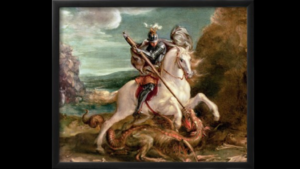
Why a dragon? Bob’s introduction to his essays quotes Oliver Wendell Holmes, Jr.’s defense of legal-historical study from “The Path of the Law.” Holmes argued that knowledge of why legal rules arose in the past cultivates an “enlightened skepticism” towards those rules. Holmes emphasizes the point with a scaly, fiery metaphor: “When you get the dragon out of his cave on to the plain in the daylight, you can count his teeth and claws, and see just what is his strength.” The next step “is either to kill him, or to tame him and make him a useful animal.”
Bob has spent his career tugging on the tails on dragons to drag them out of their lairs. In the spirit of Bob, our St. George, we offer a brief Field Guide to Dragons, their Varieties and Habitats. What are the dragons?
(1) First, there is the dragon of originalism. You might think that two and quarter centuries after the framing of the Constitution we should let sleeping founders lie undisturbed, and not try to rouse them to settle our disputes. Wise schools make this their policy. For instance, the motto of Harry Potter’s Hogwarts is: Draco dormiens numquam titillandus [“Never tickle a sleeping dragon”].
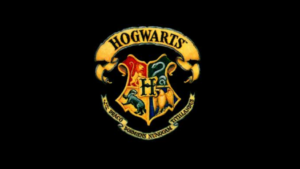
What can go wrong if you wake a sleeping dragon? Bob has long warned that the dragon of originalism can be readily deployed to guard economic inequality and hierarchies of wealth.
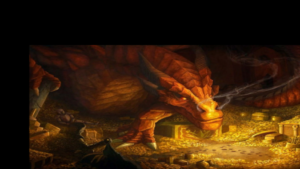
Originalism can also be used for political revivals. This dragon can be enlisted in the resurrection of forms of political rule long assumed to have been discarded.

(2) There is a second dragon: the dragon of law-office history. This is where you aim to recover a single, authoritative meaning from the past that can be put to the service of advocacy. But once you enter Bob’s tutelage and commit to “critical historicism,” goodbye to the histories produced in law offices, with their “strings and sealing wax and other fancy stuff.” Law office history “lives forever.” But, as Bob’s student, in your heart law office history will “cease its fearless roar.” Your work will make this “mighty dragon” bend his head “in sorrow” and he will “sadly slip into his cave.”
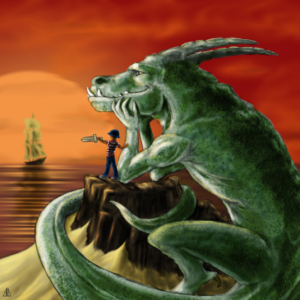
But don’t be too sad. This particular dragon is having a revival in Colorado.
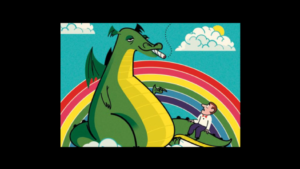
(3) Third, and finally, there is the dragon of classical legal thought. Classical legal thought was a form of “legal consciousness” that particularly interested Bob. How do we reconstruct it? Bob said: attend to the mandarins.
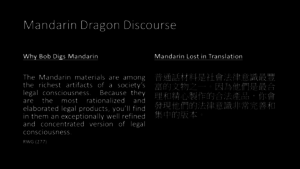
Mandarin legal materials are a rich source. Formalism was a key part of classical legal thought. If you look to the mandarins, you will find the dragon of classical legal thought expressed with all due formality.
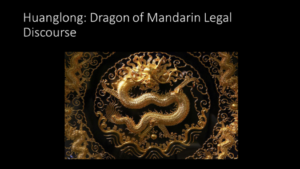
Bob taught us to look for contingency. When we do, we see that mandarins did not have to create decorous dragons. It was always possible for history to have taken another path and for the mandarins to have made different kinds of dragons.

Bob, our St. George, has inspired students and friends to take up his work. Bob will be our guide and our courage and our encouragement when we approach a dark dragon lair and feel about for the tail.
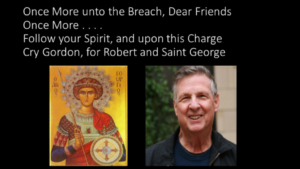
A Toast to Bob Gordon
Nicholas Parrillo
When I look back on my studies in law school and graduate school, the most delightful memories—the ones that make me think grad school wasn’t just something I had to do but something I loved doing—are the memories of my interactions with Bob Gordon, as an advisor and classroom teacher.
Graduate level historical research, as we all know, can be an isolating experience. Your days are spent, alone, sorting through overwhelming amounts of information, always uncertain as to what professional future you will have, if any. Bob himself once said to me, “Being a graduate student is like being on the high seas in an open boat.” That was apt. But as isolating as the voyage of doctoral research sometimes was, I had a north star—a guiding light—and that was Bob. After many weeks of finding and reading sources, I would go to Bob’s office, and he and I would talk through what I had found, and it would all start to make sense. Bob would use his vast multi-disciplinary knowledge to point me, in the most unassuming way, to new literatures and contexts in which to better understand what I had seen. And he was able to tell me, with gentleness but also the utmost clarity, which of my interpretations were workable and which not. I would sometimes enter those meetings thinking, “Why am I doing this?” But I would always leave thinking, “This is all worth it.” As an advisor, Bob was the best.
But I must also say something about Bob the classroom teacher, from whom I took multiple courses, including an unforgettable elective lecture in American legal history, in spring 2002. Bob taught from copious notes, providing fifty of us law students with a lasting foundation in the subject. But the best moments of the course—the ones my classmates and I came to await eagerly—were the ones when Bob would abandon the notes and begin wandering the front of the room, saying whatever came to his mind on the point at hand. Bob is, hands down, the best extemporaneous speaker I have ever met. His tone and cadence might suggest rambling, sometimes bordering on tirade, but his actual words flowed in complete sentences and paragraphs, studded with insight, nuance, and silliness.
Some professors approach classroom humor by recycling funny lines from years past, but the things Bob said were so wonderfully zany and far-out that it was impossible to believe they were planned. Sixteen years later, dozens of them stick in my mind. In the lecture on the historical rise of the case method and the Socratic method, and how a law student’s success at these things became the ticket to the best jobs on Wall Street and in government and academia, Bob said: “Student success at Langdellian legal education is like eel-swallowing. There’s no doubt: it’s impressive. My God, he swallowed an ENTIRE EEL! But is it really a proxy for universal competence?”
The whole class was enthralling, not just for me but all fifty of us. At the end of one session, mid-semester, Bob announced that, the following week, we would devote an entire day to Oliver Wendell Holmes, Louis Brandeis, and their odd-couple relationship. On hearing this, my classmate Prasad Krishnamurthy, who’s now a professor of financial regulation at Berkeley, punched me in the arm and said: “That is gonna be awesome!” It was awesome. Bob was awesome. On the last day of the term, we gave him a standing ovation.
Twelve years ago, I took the train to New York for a day to meet, for the first time, a professor at Columbia whom I’d heard a lot about—John Witt. John and I talked about my dissertation, and he recommended some things for me to read. Regarding one reference, John said: “There’s a great piece on this point by Bob Gordon.” And then John paused and said: “I say it’s by Bob Gordon—of course it’s great.” I nodded. I understood. Bob has been a guiding light for John, for me, for so many of us. We are grateful. And lucky.

